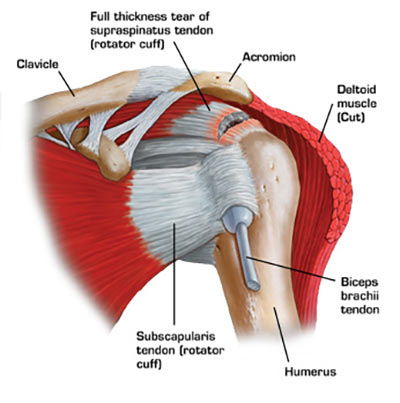 Midtown Manhattan
36 W 44th St Ste 1416 New York, NY 10036
Midtown Manhattan
36 W 44th St Ste 1416 New York, NY 10036
- (212) 621-7746
- text us
- BOOK ONLINE Call for Same Day Appointments
 Midtown Manhattan
36 W 44th St Ste 1416 New York, NY 10036
Midtown Manhattan
36 W 44th St Ste 1416 New York, NY 10036
A shoulder injury can put you out of the game while you seek shoulder injury treatment. Your sports injury specialist in NYC treats common shoulder injuries and shoulder instability on a regular basis. He’s the best source for successful shoulder injury treatment. Shoulder tendon injury treatment and shoulder instability treatment are designed to get you back in action quickly and safely. Come to our pain control clinic in NYC and make your appointment today to get an accurate pain evaluation and treatment.
 Sore muscles or aches in your shoulders plague nearly everyone. The shoulder joint has the greatest range of motion of any joint in your body, and that makes it susceptible to injury or overuse. Problems such as wear and tear or the natural process of aging also create discomfort and lack of mobility.
Sore muscles or aches in your shoulders plague nearly everyone. The shoulder joint has the greatest range of motion of any joint in your body, and that makes it susceptible to injury or overuse. Problems such as wear and tear or the natural process of aging also create discomfort and lack of mobility.
Your shoulder is a ball-and-socket joint with three main bones: the humerus or upper arm bone, the clavicle or collarbone and the scapula or shoulder blade. Ligaments, tendons and muscles hold these bones together. The bones and soft tissue also protect the large nerve bundles running from your neck down into your arms.
Each element of this complex joint has the potential for injury. And if one part fails, for whatever reason, you may end up with shoulder instability. Then you need the expertise of our top-rated pain specialist in NYC.
A shoulder injury can result from an acute injury, from overuse injuries or from other related causes. Even poor habits contribute to the possibility of injury or shoulder instability. Acute injuries include:
The range of motion of your shoulder makes it very vulnerable to various injuries. Using advanced technology, we can accurately diagnose the type of injury you have and develop individualized treatment programs based on the data collected.
The most common shoulder injuries include:
Other causes include:
These are just some of the possible types of shoulder injuries. Each case requires individualized treatment and attention. See a doctor for evaluation and treatment if you or someone you know has suffered a shoulder injury.
Symptoms of shoulder instability and shoulder injury vary widely in severity, depending on the cause. Common symptoms include:
Dr. Melepura is the best! He worked with me to find the optimal solution to my shoulder injury while I was preparing for a fight! As a result, I was able to keep training without pain!
Katherine ErbeznikOur pain care specialist begins diagnosis with a complete medical history, including any traumas or injuries, especially recently. He conducts a thorough physical exam of your shoulder, testing for tenderness, numbness, and weakness.
Your doctor may also order imaging tests such as x-rays, ultrasound, computed tomography, or magnetic resonance imagery (MRI). These pinpoint whether bones, discs or soft tissue such as ligaments or tendons are causing your pain.
Treatment depends on the cause and severity of your pain and injury, but your pain specialist often suggests some combination of the following:
Your pain specialist always recommends the most conservative, but effective treatment for shoulder instability and all other shoulder injuries. Surgery is a last resort, due to the risks and extended recovery time. Should you require replacement surgery, recovery can take up to six months, including the accompanying rehabilitative physical therapy.
Whether you’re trying to prevent shoulder injury or working to take special care after your shoulder injury treatment, some basic habits can be beneficial to alleviate or avoid future pain and shoulder instability issues. These preventative steps include:
Your sports medicine doctor knows and understands the mechanics of your shoulder. He works to find the best treatments for your shoulder injury. If you follow his guidance, ‘ll get you back to a pain-free, active lifestyle, full of health and with a full range of motion.
Do you have any questions about the shoulder injury treatment we offer in NYC? Would you like to schedule an appointment with the best-rated pain specialist Dr. Febin Melepura of the sports injury clinic in NYC? Please contact our office for a consultation with the pain relief specialist in Midtown Manhattan.
Sports Injury & Pain Management Clinic of New York
Febin Melepura, MD is a top rated, best in class interventional pain management doctor. He is a nationally recognized pain relief specialist and is among the top pain care doctors in New York City and the country. He is an award winning expert and contributor to a prominent media outlets.
Dr. Febin Melepura has been recognized for his thoughtful, thorough, modern approach to treating chronic pain and, among other accolades, has been named a “top pain management doctor in New York”, and one of “America’s Top Doctors™” for an advanced sports injury treatments.